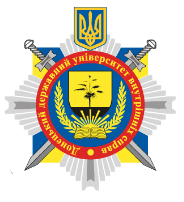COMPARATIVE HISTORICAL AND LEGAL ANALYSIS OF POLICE CONCEPTS IN THE AUSTRIAN-HUNGARIAN AND RUSSIAN EMPIRE IN XVIII–XIX CENTURIES
DOI:
https://doi.org/10.32366/2709-9261-2022-3-1-9-15Keywords:
empire; police; police state; social relations; legality; fight against crime; gendarmerie; trade police; administrative police; dictatorship and authoritarianism.Abstract
The relevance of the article is due to the need to analyze the concept of models of police states of the Russian and Austro-Hungarian empires in the period of XVIII-XIX centuries. The article examines the range of powers of the police of that time and its importance in ensuring public order, security and state integrity. The normative and legal basis of gendarmes' activity, tasks and structure of law enforcement agencies are considered separately. The aim of the article is a comparative legal analysis of legal and historical aspects of the concept, objectives, structure, role and importance of the police in the Russian and Austro-Hungarian empires of the XVIII-XIX centuries. In summary, we can say that both states in a certain period are real examples of the above-mentioned police state, which is certainly a new stage of so-called "neo-absolutism", where the whole state is no longer subject to the will and whims of one person and legality. The police closely monitor all this and bring order with a tough hand and any method available to them, whose power extends to almost all aspects of the social life of the people and the state as a whole. The purpose and tasks of the police two hostile empires were generally similar. After all, the main goal of the Austrian and Russian gendarmes was to keep calm and order on the territory of the entire empire by law, which is asserted by its ruler, as well as to prevent the collapse of the country as a result of the release of conquered peoples.The ideal of a police state was complete control over the subjects. It is from this point of view that passport accounting and registration were developed. However, they operated even earlier because they belonged to the so-called local security police. Such police dealt with the lives of all sections of society, even the lowest. Philosophers such as Christian Wolf were the first to voice this idea of a police state in Germany, and later it was adopted by the Austrians and Peter I during their travels in Europe, thus starting this idea in St. Petersburg. Of course, this idea has a number of shortcomings, and has no place in modern life, but at that time, in the opinion of the emperors and authorities under them, this way of organizing the state and ensuring order, was almost the only way to preserve their occupied territories and manage them.
References
Robert A. Kann. A Historу of the Habsburg Empire, 1526-1918. 1974. 184 p. URL: https://www.ucpress.edu/book/9780520042063/a-history-of-the-habsburg-empire-1526-1918 (дата звернення: 10.04.2022).
Селиванов А. М. Служить отечеству честь имею. Ярославль, 2002. 632 с. URL: http://lib.yar.ru/yarcln/edoc/yarsu/pdf/191800.pdf (дата звернення: 10.04.2022).
Романюк А. Поліцейська держава. Політична енциклопедія / редкол.: Ю. Левенець (голова), Ю. Шаповал (заст. голови) та ін. К. : Парламентське видавництво, 2011. 597 с.
Raeff M. The Well-Ordered Police State: Social and Institutional Change through Law in the Germanies and Russia 1600-1800. News Heaven, 1983. 713 s. URL: https://repository.law.umich.edu/cgi/viewcontent.cgi?article=2547&context=mlr (дата звернення: 10.04.2022).
Реент Ю. А. История правоохранительных органов: полицейские и тюремные структуры России : монография / М-во юстиции Рос. Федерации; Акад. права и упр. Рязань : Акад. права и упр. Минюста России, 2002. 206 с.
Horel C. Soldaten zwischen nationalen Fronten. Die Auflösung der Militärgrenze und die Entwicklung der königlich-ungarischen Landwehr (Honvéd) in Kroatien-Slawonien 1868–1914. URL: https://sirice.eu/publication/soldaten-zwischen-nationalen-fronten-die-auflosung-der-militargrenze-und-die-entwicklung-der-koniglich-ungarischen-landwehr-honved-kroatien-slawonien-1868-1914 (дата звернення: 10.04.2022).
Nowakowski T. Armia austro-węngierska. Warszawa, 1992. URL: https://ah.org.ua/armia-austro-wegierska-1908%E2%80%931918 (дата звернення: 10.04.2022).
Лозинський А. Підрозділи військової поліції Австро-Угорської імперії. Наукові зошити історичного факультету Львівського університету. 2017. Вип. 18. С. 23–29.
Зигрій О. C. Порівняльний аналіз організації поліції в Російській імперії та Австро-Угорщині. Правова система України в умовах європейської інтеграції: погляд студентської молоді : збірник тез доповідей І Міжнародної студ. наук. конференції. (м. Тернопіль, 3–4 квіт. 2017 р.). Тернопіль, 2017. С. 53–56. URL: http://uf.wunu.edu.ua/wp-content/uploads/2020/03/Zbirnik-YUF-2017-CH.1-1.pdf (дата звернення: 10.04.2022).





